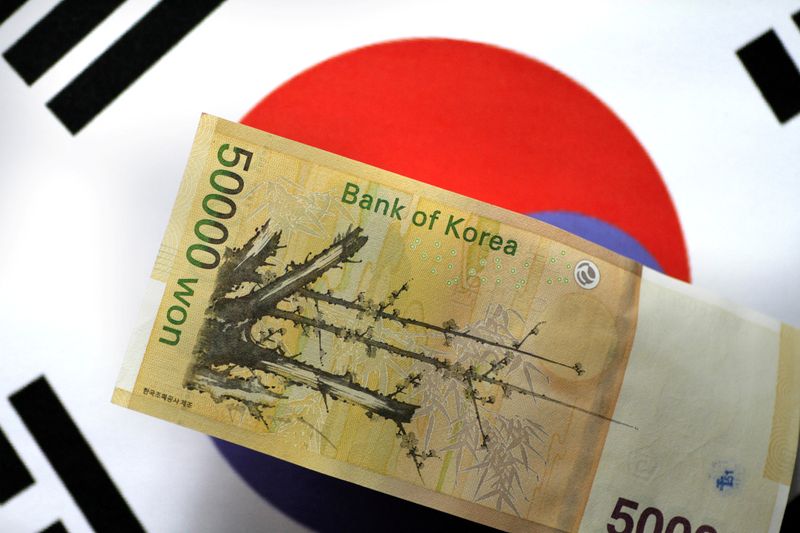SEOUL (Reuters) – South Korea’s central bank said on Wednesday there is a possibility that downward pressure will increase again on the won currency, vowing to step up monitoring of risk factors and stabilize markets where necessary.
“It is difficult to completely rule out the possibility of further downward pressure on the won,” the Bank of Korea said in its semi-annual financial stability report.
Among the key risk factors the bank cited for the currency were a pullback in interest rate cut expectations in the US, the geopolitical conflict in the Middle East and the weakness of the Japanese yen and currencies.
The financial leaders of South Korea and Japan this week expressed shared concern about their currencies’ sharp declines and vowed to defend them as they slid toward key psychological thresholds of 1,400 and 160 against the dollar, respectively.
The won’s recent weakness has been stronger than the US dollar’s rise, while most investment banks still expect the won to stabilize by the end of the year, the BOK said.
Domestically, Korea’s central bank assessed exposure to real estate project financing as a key risk factor for the country’s financial system.
There is little chance of real estate-related risks turning into systemic problems, the report says, but the risk of default has increased for real estate projects due to a sluggish real estate market and rising input costs, with defaults rising rapidly in the non-banking financial sector. sector.

The bank said it would strengthen monitoring of external and internal risk factors to ensure an effective policy response.
It added that it would work closely with other authorities to address unexpected market instability factors by deploying stabilizing measures in a timely manner.


